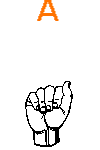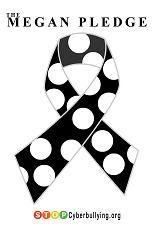We had our first Special Education Parent Advisory Committee last night. Just call me Madame Chairperson for another year, thanks. I hope this year's opportunity doesn't slip through my fingers like last year.
Our director of student services handed out a very nice article about person-first language. Language is a tricky thing, since it is so powerful, yet so flexible. Language is a tool for us to communicate ideas, knowingly... or unknowingly. Showing respect should be of the utmost importance, and person-first language should absolutely be the choice, particularly in professional contexts. A professional, not knowing me, my family, or my children, should refer to Joey as a person with autism. The emphasis when speaking about Joey should always be Joey; just as you would probably prefer that anyone speaking about you should emphasize you, not some facet of you, large or small.
You may have noticed that is not how we solely refer to Joey ourselves. In fact, I get emails about it regularly. For us, Joey is autistic. Autism is not something separate from Joey as a person. It simply is a fact, one of many ways to describe Joey. When it is the important fact in the context, then it becomes the adjective of choice as appropriate, just like any other: Joey is tall. Joey is happy. Joey is squishy. Joey is intelligent. Joey is handsome. Joey is autistic.
The great thing about using person-first language is that it emphasizes the person, something that gets lost in a world of labels and misinformation. Or more properly, someone who gets lost, especially when they are surrounded by people who are intensely ignorant of disability, ability, and special needs. It become important to communicate to such people that everyone is a person. It is vital to emphasize to our children that they are who they are, to highlight their ability rather than disability, and that their disability is a neutral factor in their existence; they are not poor, afflicted, suffering victims. They simply are who they are, and we start from here.
Yet there is something in acknowledging that they are who they are, and that some disabilities are intrinsic to who people are. Joey would not be Joey if he was not autistic. He would be a completely different person. I don't even know who that person would be, or would have been. They don't exist. Joey is not, to me, just a "child with autism", because there is no such person as Joey without autism.
But far more importantly, we are paying attention to how Joey refers to himself. He is not yet talking about autism. Just as when he was small and I had no name, I just was, for Joey, autism just is. One day, he will process that the way he thinks and understands and experiences the world is referred to by the rest of us as "autism." Then comes the true test of person-first: referring to Joey as he prefers to refer to himself. Will he be "me, with autism", or will he simply say "I am autistic"?
Thursday, October 20, 2011
Down Syndrome Awareness
October is awareness month for many causes near and dear to my heart, including Down Syndrome. We now have a variety of friends with Down syndrome, and are so glad to have them. They are wonderful people, and we have learned a lot about the differences between expectations, popular misinformation, and reality.
If you are new to the Special Needs or Down syndrome community, the National Down Syndrome Congress has a wonderful page for you to visit.
One of the best things about this page is how people with Down syndrome are understood as "little packets of human potential." It reminds me of my own parents, who always said of babies, "There's a whole person in that tiny little package!"
And you know what? It is absolutely true.
Go ahead, take that first step into community, acceptance, and celebration of all people. It is worth a few minutes of reading.
If you are new to the Special Needs or Down syndrome community, the National Down Syndrome Congress has a wonderful page for you to visit.
One of the best things about this page is how people with Down syndrome are understood as "little packets of human potential." It reminds me of my own parents, who always said of babies, "There's a whole person in that tiny little package!"
And you know what? It is absolutely true.
Go ahead, take that first step into community, acceptance, and celebration of all people. It is worth a few minutes of reading.
Tuesday, October 18, 2011
I So Did Not Want To Leave The Park Today
The sun was shining, the leaves are turning, one simply cannot waste such an afternoon. The boys did their reading, then off to the park! woo-hoo!
Usually, the park is a mixed success. Andy finds himself some friends, runs around, and has a grand time. Joey prefer to walk in circuits, look at the babies, and wander up to people at random and try to talk with them.
As an interesting side note, I can tell a lot about people by watching how they react to Joey. Some folks play right in. Some smile and try to participate. Some tolerate. Some shun. Some even get nasty. The gauge has yet to be wrong, either.
Today was looking pretty typical. Andy found some kids about his age, and starting running about with them, letting the slightly younger ones join in. He's good at that. They spent the afternoon playing Star Wars all over the park. Andy looked a bit like the Pied Piper, as he apparently was the leader of the battles; so everybody was running after him (and he's a head taller than all of the others, even the ones his own age).
Joey found the babies. One of the families questioned why he was in that area of the playground since he was "clearly older than five." (So are you, dude. It isn't like Joey is blocking your kid from playing on anything, or bouncing on the spring animals. He's trying to play with your kid.) Joey picked up on the nasty right away, and gravitated towards a couple other babies with nicer parents.
And then it happened. A group of four kids appeared; they looked about Joey's age. Two girls, two boys. They looked so much alike, they must either be related (siblings? cousins?) or see a lot of each other. A clique, coming to have fun in the fall sun. Joey noticed them right away, and pulled himself away from the little ones to go check them out.
He didn't directly approach them at once. He found a stick, and wandered over to that section of the playground, the one with the bigger slides and the new seesaws. He walked about the area for a while, seeming absorbed in his stick, writing in the air, making a careful circuit. But I realized he was checking those kids out. I wondered how much he really saw in his peripheral vision; I suspect he was using it heavily to observe this interesting little group. How to approach them? What to say? What to do?
They didn't wait. One of the girls called him over. One of the boys recognized him. They asked him to play- to get on the seesaw with them, help them take turns. They even had him help one of the girls, who was skittish about the seesaw; he kept the boy on the other end from taking her too high, and he patted her hand. And when it was time to go home and get dinner? They gave him high-fives, and told them they were glad to see him.
They were glad to see him, happy to include him, the one girl said she was happy to meet him, and hoped to see him again soon. He was beaming. So was I.
I can tell a lot about people, by how they treat Joey. We so did not want to ever, ever leave.
Usually, the park is a mixed success. Andy finds himself some friends, runs around, and has a grand time. Joey prefer to walk in circuits, look at the babies, and wander up to people at random and try to talk with them.
As an interesting side note, I can tell a lot about people by watching how they react to Joey. Some folks play right in. Some smile and try to participate. Some tolerate. Some shun. Some even get nasty. The gauge has yet to be wrong, either.
Today was looking pretty typical. Andy found some kids about his age, and starting running about with them, letting the slightly younger ones join in. He's good at that. They spent the afternoon playing Star Wars all over the park. Andy looked a bit like the Pied Piper, as he apparently was the leader of the battles; so everybody was running after him (and he's a head taller than all of the others, even the ones his own age).
Joey found the babies. One of the families questioned why he was in that area of the playground since he was "clearly older than five." (So are you, dude. It isn't like Joey is blocking your kid from playing on anything, or bouncing on the spring animals. He's trying to play with your kid.) Joey picked up on the nasty right away, and gravitated towards a couple other babies with nicer parents.
And then it happened. A group of four kids appeared; they looked about Joey's age. Two girls, two boys. They looked so much alike, they must either be related (siblings? cousins?) or see a lot of each other. A clique, coming to have fun in the fall sun. Joey noticed them right away, and pulled himself away from the little ones to go check them out.
He didn't directly approach them at once. He found a stick, and wandered over to that section of the playground, the one with the bigger slides and the new seesaws. He walked about the area for a while, seeming absorbed in his stick, writing in the air, making a careful circuit. But I realized he was checking those kids out. I wondered how much he really saw in his peripheral vision; I suspect he was using it heavily to observe this interesting little group. How to approach them? What to say? What to do?
They didn't wait. One of the girls called him over. One of the boys recognized him. They asked him to play- to get on the seesaw with them, help them take turns. They even had him help one of the girls, who was skittish about the seesaw; he kept the boy on the other end from taking her too high, and he patted her hand. And when it was time to go home and get dinner? They gave him high-fives, and told them they were glad to see him.
They were glad to see him, happy to include him, the one girl said she was happy to meet him, and hoped to see him again soon. He was beaming. So was I.
I can tell a lot about people, by how they treat Joey. We so did not want to ever, ever leave.
If It Is Demeaning, It Isn't Humor.
Yes, bouncing about the internet are those lovely little sayings, and now its so popular to stick bumper stickers in your facebook news. The one I shall jump upon my soapbox this evening to highlight is: "My sense of humor may hurt your feelings. i suggest you get over it."
Why do people think that demeaning others is "funny"? Why do people think it is OK to get pleasure by causing another pain? How would they like it if it was their feelings being hurt, their lives being demeaned? What happened to that basic of respect, treating others as you would want to be treated?
Do people really think I ought to keep this in mind the next time I hear or see a "retard joke" in front of Joey? Sadly, they do. Really. I wonder what those people would think if I took a baseball bat and smacked them upside the head with it. Hey, lots of people think slapstick is funny, right? Do people not understand that emotional pain can be far more damaging than physical pain?
Humor is a very culturally determined thing. As culture emerges from the dark and learns how important respecting others really is- and how well it really works- we change our idea of what is funny. Little Black Sambo is not funny, it is demeaning; and when society realized it was demeaning, Little Black Sambo jokes disappeared.
But there are still groups and people that society do not see as fully human, and so demeaning them is seen as acceptable. When those groups begin to protest, telling them to just "get over it" is not acceptable, either. There are plenty of wonderful, joyous, and really hilarious moments in the world, without having to cause another any pain at all. Causing pain isn't funny. Hurting isn't humor.
No, I will not get over it. I hope that you will, instead, rise above it.
Why do people think that demeaning others is "funny"? Why do people think it is OK to get pleasure by causing another pain? How would they like it if it was their feelings being hurt, their lives being demeaned? What happened to that basic of respect, treating others as you would want to be treated?
Do people really think I ought to keep this in mind the next time I hear or see a "retard joke" in front of Joey? Sadly, they do. Really. I wonder what those people would think if I took a baseball bat and smacked them upside the head with it. Hey, lots of people think slapstick is funny, right? Do people not understand that emotional pain can be far more damaging than physical pain?
Humor is a very culturally determined thing. As culture emerges from the dark and learns how important respecting others really is- and how well it really works- we change our idea of what is funny. Little Black Sambo is not funny, it is demeaning; and when society realized it was demeaning, Little Black Sambo jokes disappeared.
But there are still groups and people that society do not see as fully human, and so demeaning them is seen as acceptable. When those groups begin to protest, telling them to just "get over it" is not acceptable, either. There are plenty of wonderful, joyous, and really hilarious moments in the world, without having to cause another any pain at all. Causing pain isn't funny. Hurting isn't humor.
No, I will not get over it. I hope that you will, instead, rise above it.
Subscribe to:
Comments (Atom)



















